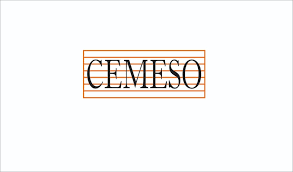The Centre for Media and Society (CEMESO) has held a one-day Media and Inclusion Conference to galvanize stakeholders’ efforts to promote the increased participation of women, youths and persons with disabilities in governance.
The conference is held as part of the European Union Support to Democratic Governance (EU-SDGN) Phase II, which has the overall objective of fostering a functioning pluralistic, inclusive, participatory and representative democracy in Nigeria.
In his remarks, Dr. Akin Akingbulu, the Executive Director of CEMESO, said the organization is working to promote inclusion in democracy, in line with the global mantra of ‘leave no one behind’.
Dr Akingbulu said there are still wide gaps to be addressed in attaining inclusion, adding that “large sections of citizens are still underserved or unserved in the electoral processes. Key demographics within our population are still unable to participate actively in our political processes or even access leadership positions in democratic governance.
“This is one key issue that the Support-to-Media pillar of the EU-SDGN project works to address. We focus on three important segments of the population; women, youths and people with disabilities (PWDs). We work on strengthening media engagements to facilitate the improved and more visible participation of these groups in politics and leadership in the country.”
He thereafter charged participants at the conference to share “thoughts and ideas that will contribute to increase in the volume and quality of media platforms coverage and promotions of inclusion issues through advocating for the participation of women, youths and PWDs in leadership and electoral processes.”
Mr. Timothy Bamidele, the Programme Manager, CEMESO explained that the organization is working to ensure that “the Media, including New and Social Media, provides fair, accurate, ethical and inclusive coverage of the Electoral Process.”
Bamidele noted that to achieve the overall objective, it is expected that project would ensure that “Professionalism of media practitioners, especially women is enhanced; Media professional capacity to deal with electoral misinformation/disinformation strengthened; Media platforms ability to diversify, deepen the coverage of the electoral process and deliver civic and voter education is enhanced.
“Media awareness and use of FOI Act for increased accountability improved; National Broadcasting Commission (NBC) is strengthened to perform its mandate; and Media engagement in promoting women, youths and marginalized groups in politics is improved,” he added.
Mr. Lanre Arogundade, the Executive Director of the International Press Centre (IPC), the co-implementing partner of the support to media pillar of the EU-SDGN II, said inclusion should be at the core of governance as an inclusive society helps to tap into the talents of everyone developing the nation.
Arogundade said women, youths and persons with disabilities have different skill sets that can be harnessed, but when it gets to leadership, their representation is low.
He charged media professionals in attendance to conduct stakeholder mapping and ensure there is no exclusion on any part.
The Executive Secretary of the Broadcasting Organization of Nigeria (BON), Yemisi Bamgbose, who commended CEMESO for facilitating the interaction also noted that “there is a need for us to ensure total inclusion, we should not continue to sideline these groups of people in our media messaging.”
Mariam Menkiti, the Executive Director of the Women Information Network (WINET), explained that “the present state of things in Nigeria show that there seems to be an increasing gap in the participation of women in governance, politics and other spheres of life.”
Menkiti, who said the 5 gender bills: the Affirmative Action Bill, the Ministerial or Commissioner Nomination Bill, the Reserved Seat Bill, the Citizenship Bill and Indigene-ship Bill, have not received a favourable response from the National Assembly, appealed to the 10th Assembly to make the gender bills a top priority to enhance the participation of women in leadership positions.
Dr Patricia Taiwo from the Faculty of Social Sciences, University of Ibadan, noted that cultural and religious beliefs have prevented women from emerging into leadership opportunities as they are viewed as subordinates to men.
She charged the media to begin to change the narratives and promote positive narratives about women.
Mr Jake Epelle, the Executive Director of TAF-Africa who commended the media for improving the coverage of disability issues called for an increase in the coverage such that negative perceptions against PWDs can be addressed.
Also on his part, Mr Jide Ojo, a Public Affairs Analyst recognized the emergence of youths in leadership positions, but stressed that the margin is still low and there is a need to leverage on the Not Too Young To Run to increase the emergence of youths into political leadership positions.

